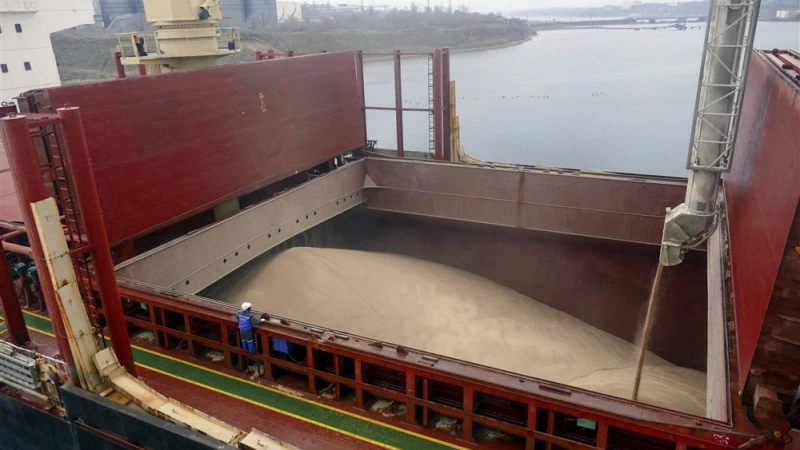Ukraine seeks guarantees if it permits transit of Russian ammonia

Ukraine has sought guarantees from Russia and the UN that any agreement on the export of Black Sea grain would work normally if it permitted Russian ammonia to be exported across Ukrainian territory.
Yuriy Vaskov, Ukraine’s deputy renovation minister, told a grain conference on Tuesday May 30th that “we do not understand now – does the ammonia pipeline itself solve something or not? If it does not solve anything by itself, then there is no dialogue”. He added that “If it is a key issue, then the UN must clearly say that if the ammonia pipeline resumes working, then Ukraine will have such opportunities (to export grain in a normal way) and then our top political leadership will decide whether it is in our interests or not.”
The statement clearly does not promise that Ukraine would agree to the transit of ammonia – which Russia has noted was agreed in the original brokered deal last July – only that Ukraine’s leaders would consider the matter.
Russia has agreed to a second two-month extension of the deal, following a four-month extension last November, but has said the initiative will cease unless an agreement aimed at overcoming obstacles to Russian grain and fertilizer exports is fulfilled.
A fundamental demand from Russia is that the transit be resumed of ammonia from Russia via Ukrainian territory to Pivdennyi port near Odesa, from where it is exported. The transit of ammonia, an important part of nitrogen-based fertilizers, was halted via the pipeline after Russia’s invasion.
Despite Russia agreeing to an extension of the grain deal, no ships have been authorized to travel to Pivdennyi (Yuzhny) port since April 29th. This selective blockade by Russia was seen as a response to the continued blocking of the ammonia pipeline at Pivdennyi.
Russia has also demanded that the Russian Agricultural Bank (Rosselkhozbank) be reconnected to the SWIFT international payment system. That looks very unlikely to happen, but exporters in Russia do have alternative options, and the condition was not thought to be a deal-breaker.
Other Russian demands are the resumption of supplies of agricultural machinery and parts; a lifting of restrictions on insurance and reinsurance; and the unblocking of assets and accounts of Russian companies involved in food and fertilizer exports. There is an opportunity for some leeway in all these areas, on both sides. Indeed western insurers have been pointing out that its inability to offer cover for some international deals was working against the interests of the west. However, a demand on the Ukrainian side – that the pipeline could only be reopened if the number of Ukrainian ports in the Black Sea corridor were increased – looked to have little chance of success.
Source: Insurance Marine News 1st June 2023

